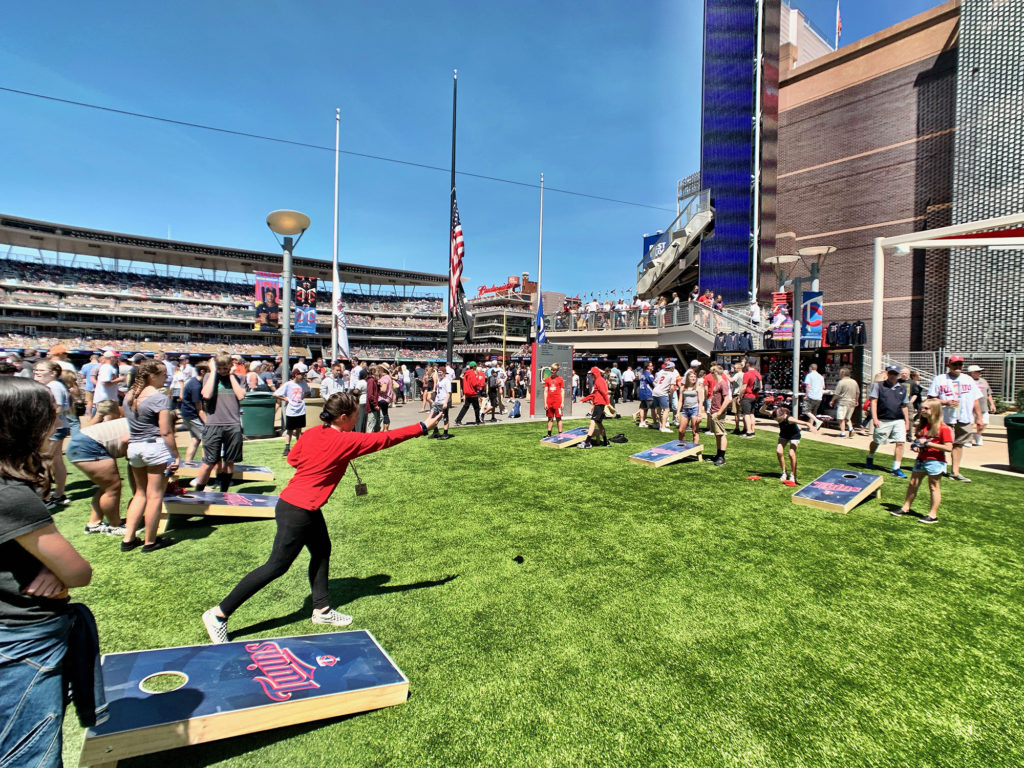
The Minnesota Twins are winners of the 2021 MLB Green Glove Award, becoming the first team other than San Francisco or Seattle to win the award.
The Green Glove Award is given to the MLB club with the highest diversion rate during the previous year; in 2021, the Twins saved nearly 99 percent of Target Field waste from landfills–a process driven by both the club’s partners and the in-ballpark efforts of fans. The Twins’ home ballpark is thoroughly cleaned following each game and event by St. Paul-based Marsden Services; all accumulated waste is carefully sorted into recyclable items, compostable materials and trash, before being diverted accordingly.
“Our commitment to sustainability informed the design and construction of Target Field, while guiding how we operate and maintain the ballpark each and every day since first opening its gates,” said Twins President & CEO Dave St. Peter via press release. “There is a shared pride in Target Field’s standing as the ‘Greenest Ballpark in America,’ along with a recognition of the broader impact and importance. I applaud our entire organization, our fans, and our dedicated community and commercial partners, for their tireless and continued efforts to ensure the Twins and our ballpark are true environmental stewards.”
Here’s the waste diversion by the numbers. During the 2021 season, 33.8 percent of waste produced at Target Field was compostable; since 2011, the Twins have composted 3,796 tons of organic materials. Another 33.4 percent was recycled–bringing the running 11-year total to 4,743 tons–while 0.8 percent was unused, untouched food from back of house operations that, via partnership with Delaware North and Rock and Wrap It Up! Inc., was donated to local charities. The remaining 31.1 percent was non-compostable and non-recyclable trash that the Twins sent to the Hennepin Energy Recovery Center (HERC, located a stone’s throw from the ballpark), adding to the 4,190 tons of Target Field waste delivered to the HERC since 2011. Once at the HERC, the ballpark’s waste is added to trash collected throughout Hennepin County, with 90 percent of this accumulation then processed in a manner that creates high-pressure steam; this steam generates enough electricity to power 25,000 homes, with a portion piped to 100 downtown buildings, including Target Field, for heating and cooling needs.
“Our organization puts a real emphasis on doing the right thing, the right way and for the right reasons,” said Twins Vice President, Ballpark Operations Dave Horsman via press release. “Waste diversion is important for many reasons, not the least of which is the sheer amount of waste that a professional sports venue can produce. Anything we can do to reduce the potential negative impact of waste is important, and we will find a way to get it done.”
This is not the first sustainability award for the Twins and Target Field. The team received a 2019 Leadership Award from the U.S. Green Building Council (USGBC), recognizing the organization’s contributions to green building and sustainability in the sports industry. Also in 2019: Thanks to continued upgrades to Target Field, the Minnesota Twins have achieved LEED (Leadership in Energy & Environmental Design) Gold recertification for Existing Buildings: Operations & Maintenance. LEED is the world’s most widely used program for the design, construction and operation of high-performance buildings. That followed the 2017 LEED certification for Target Field.
RELATED STORIES: Minnesota Twins Receive U.S. Green Building Council Award; Target Field Earns LEED Gold Recertification; Target Field Earns LEED Gold for Operations and Maintenance
